
Yaoundé: The Heartbeat of Cameroon
Yaoundé, the capital city of Cameroon, is a vibrant and bustling metropolis nestled among seven hills. It is a city where modernity meets tradition, offering a unique blend of cultural heritage and contemporary life. As you wander through the streets, you'll encounter a rich tapestry of sights, sounds, and flavors that reflect the diverse cultures and histories of the region. The city's lush green landscape is dotted with parks and gardens, providing a refreshing escape from the urban hustle. The National Museum of Yaoundé offers an insightful journey into the country's past, showcasing artifacts, traditional crafts, and historical exhibits. For a panoramic view of the city, Mont Fébé is a must-visit spot, offering breathtaking vistas and a serene environment. Yaoundé is also home to a vibrant arts and music scene, with numerous galleries, theaters, and music venues celebrating local talent. The bustling markets, such as Mfoundi and Mokolo, are perfect places to experience the local way of life, where you can shop for fresh produce, handmade crafts, and traditional attire. The city's culinary scene is equally enticing, with a wide array of restaurants offering both traditional Cameroonian dishes and international cuisine. Whether you're exploring its historical landmarks, indulging in its culinary delights, or simply soaking in the lively atmosphere, Yaoundé promises an unforgettable experience for every traveler.
Local tips in Yaoundé
- Visit the National Museum to understand the rich history and culture of Cameroon.
- For the best views of the city, head to Mont Fébé.
- Explore local markets like Mfoundi and Mokolo for fresh produce and unique souvenirs.
- Try traditional Cameroonian dishes such as Ndolé and Poulet DG at local restaurants.
- Carry some local currency (CFA Franc) as not all places accept credit cards.
- Learn a few basic French phrases as it is widely spoken in Yaoundé.
Neighbourhoods in Yaoundé
Yaoundé: The Heartbeat of Cameroon
Yaoundé, the capital city of Cameroon, is a vibrant and bustling metropolis nestled among seven hills. It is a city where modernity meets tradition, offering a unique blend of cultural heritage and contemporary life. As you wander through the streets, you'll encounter a rich tapestry of sights, sounds, and flavors that reflect the diverse cultures and histories of the region. The city's lush green landscape is dotted with parks and gardens, providing a refreshing escape from the urban hustle. The National Museum of Yaoundé offers an insightful journey into the country's past, showcasing artifacts, traditional crafts, and historical exhibits. For a panoramic view of the city, Mont Fébé is a must-visit spot, offering breathtaking vistas and a serene environment. Yaoundé is also home to a vibrant arts and music scene, with numerous galleries, theaters, and music venues celebrating local talent. The bustling markets, such as Mfoundi and Mokolo, are perfect places to experience the local way of life, where you can shop for fresh produce, handmade crafts, and traditional attire. The city's culinary scene is equally enticing, with a wide array of restaurants offering both traditional Cameroonian dishes and international cuisine. Whether you're exploring its historical landmarks, indulging in its culinary delights, or simply soaking in the lively atmosphere, Yaoundé promises an unforgettable experience for every traveler.
When is the best time to go to Yaoundé?
Iconic landmarks you can’t miss
Entrée Simbock
Experience thrilling off-road adventures in Yaoundé's Entrée Simbock, where nature and excitement meet for outdoor lovers.
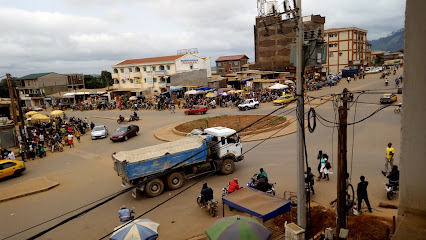
National Museum
Discover Cameroon's rich heritage at the National Museum in Yaoundé, showcasing art, history, and traditions in a former presidential palace.
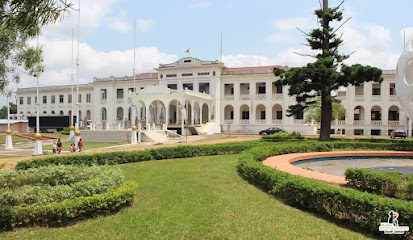
Mvog-Betsi Botanical Zoological Garden
Discover Cameroon's wildlife and botanical treasures in the heart of Yaoundé at the Mvog-Betsi Zoological and Botanical Garden.
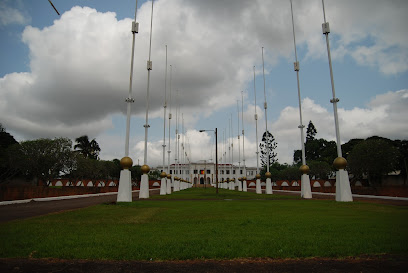
Cameroon Reunification Monument
Discover the Reunification Monument in Yaoundé, a symbol of Cameroon's unified history and cultural heritage, reflecting the nation's journey to independence.
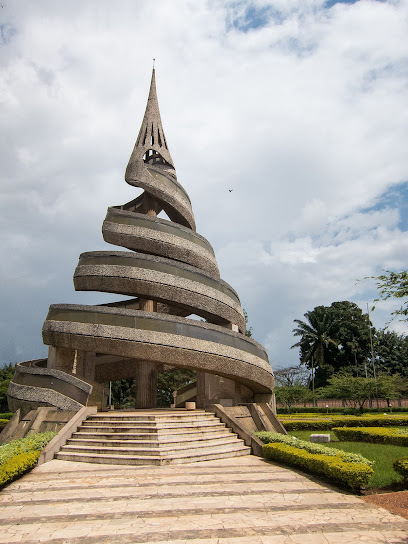
Bois Sainte Anastasie
Discover tranquility in Yaoundé at Bois Sainte Anastasie: a serene park and restaurant offering a blend of nature, local cuisine, and relaxation.
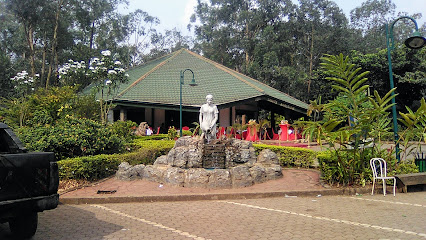
Basilica of Mary Queen of Apostles
Discover Yaoundé's architectural and spiritual heart at the Basilica of Mary Queen of Apostles, a blend of faith, art, and Cameroonian culture.
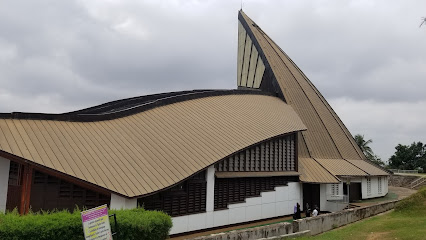
Quartier general
Discover Quartier General in Yaoundé: An enchanting children's camp surrounded by nature, offering fun and engaging activities for the whole family.
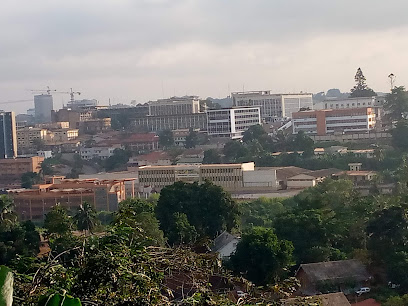
Entrée Palais des Congrée
A landmark conference center in Yaoundé, hosting major events with panoramic city views from atop Nkol-Nyada hill.
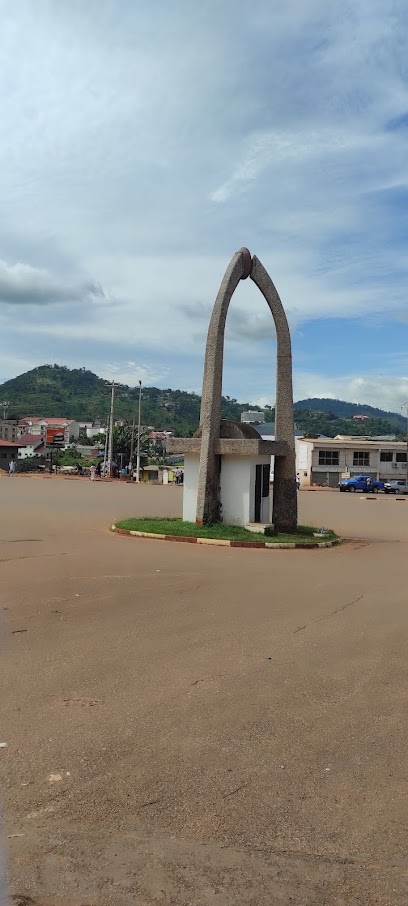
Statue of Charles Atangana
Discover the Statue of Charles Atangana in Yaoundé, a tribute to Cameroonian heritage and a symbol of leadership.
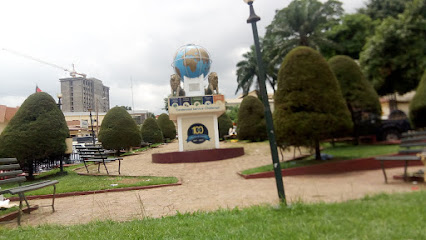
Parc de la Méfou (Ape Action Africa)
A primate sanctuary near Yaoundé, offering guided tours and a chance to witness rescued gorillas, chimpanzees, and monkeys in a natural environment.
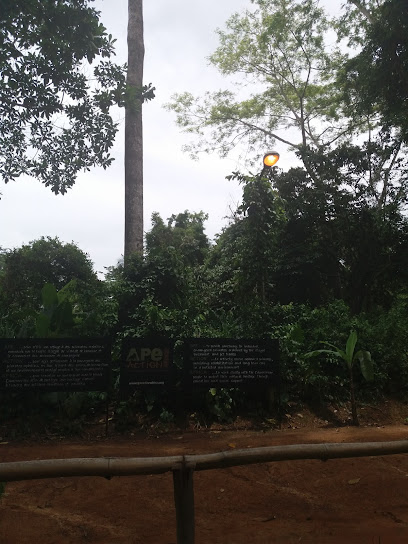
Musée Ethnographique et d'Histoire des Peuples de la Forêt d'Afrique Centrale
Discover the vibrant cultures and rich history of Central Africa's forest peoples at this captivating Yaoundé museum.
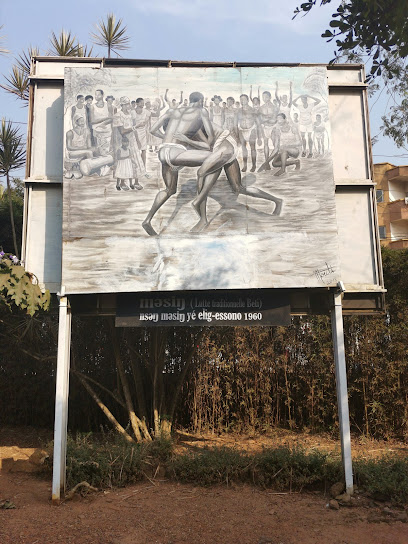
Paroisse Francophone Saint-Esprit de Mvolye
Discover the spiritual heart of Yaoundé at this Catholic church, a blend of architectural styles and community spirit in Cameroon.
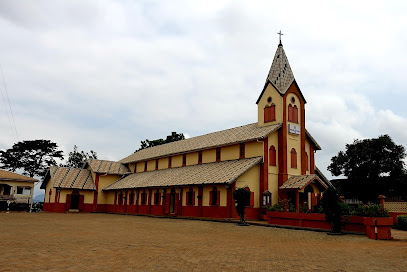
St Peter and Paul Parish English Simbock
Discover the spiritual heart of Yaoundé at St Peter and Paul Parish, a vibrant center of faith, culture, and community in the Simbock neighborhood.
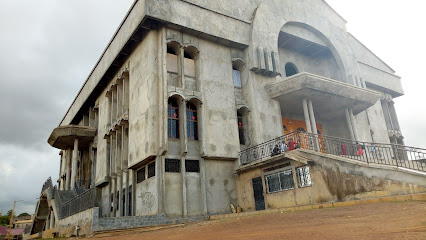
Blackitude Museum
Discover Cameroon's rich cultural heritage at the Blackitude Museum in Yaoundé, showcasing diverse art, artifacts, and traditions.
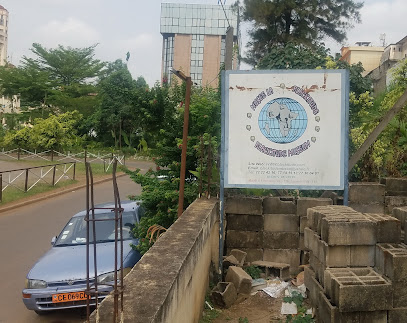
I love my country Cameroon round about
Experience Cameroonian pride at Yaoundé's 'I Love My Country' Round About: a vibrant hub of art, culture, and community spirit in Quartier du Lac.
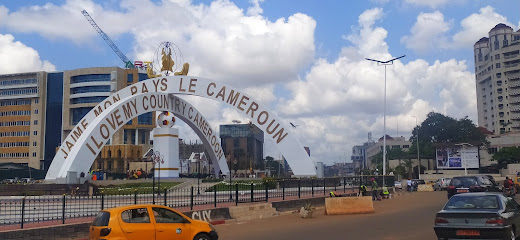
Unmissable attractions to see
National Museum
Uncover the vibrant history and culture of Cameroon at the National Museum in Yaoundé, where art and heritage come alive.
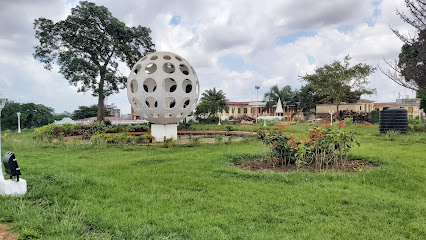
Cameroon Reunification Monument
Discover the rich history and cultural significance of the Cameroon Reunification Monument in Yaoundé, a must-see for every traveler seeking to understand Cameroon's heritage.
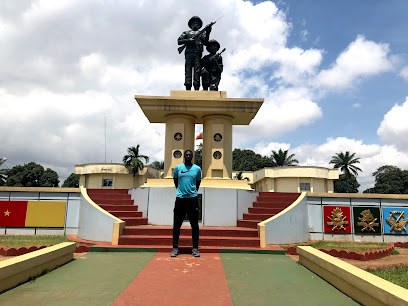
Eco Park.
Discover the tranquility of Eco Park in Yaoundé, where lush greenery and diverse wildlife create a serene escape from the urban hustle.
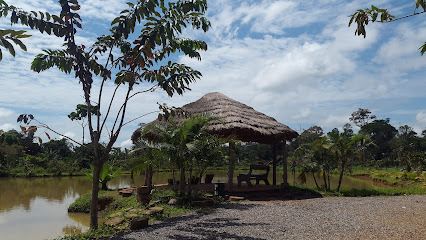
Basilica of Mary Queen of Apostles
Explore the architectural beauty and spiritual significance of the Basilica of Mary Queen of Apostles in Yaoundé, a must-visit tourist attraction.
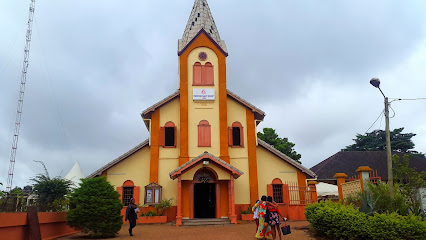
Municipal Lake
Explore the natural beauty and cultural vibrancy of Municipal Lake, a serene escape in Yaoundé perfect for relaxation and outdoor adventures.
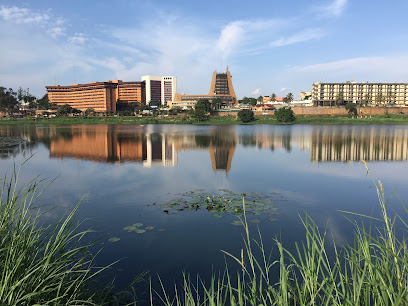
Statue of Charles Atangana
Explore the Statue of Charles Atangana in Yaoundé, a historical landmark that celebrates Cameroon’s rich cultural heritage and offers a glimpse into its vibrant history.
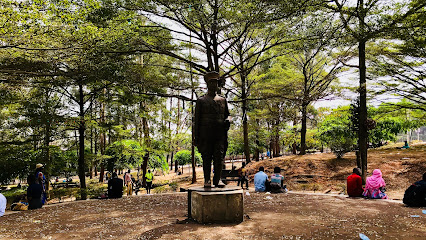
I love my country Cameroon round about
Explore the vibrant I Love My Country Roundabout in Yaoundé, a cultural hub showcasing Cameroonian pride and local flavors.
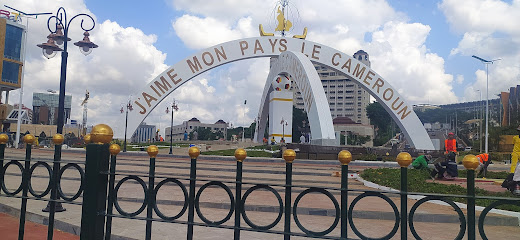
Village Madiba
Explore Village Madiba, a serene tourist attraction in Yaoundé, Cameroon, where culture, nature, and local charm come together for an unforgettable experience.
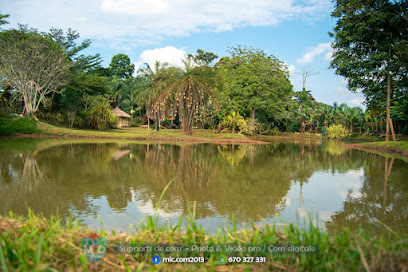
Love stone
Explore the Love Stone in Yaoundé, where folklore meets nature, creating a unique cultural experience steeped in romance and history.
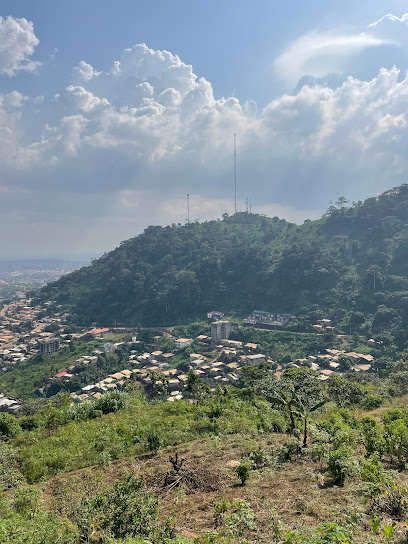
Mont Akoa Ndoue
Discover the breathtaking views and rich biodiversity of Mont Akoa Ndoue, a must-visit tourist attraction in Yaoundé, Cameroon.

L’entre Don Bosco
Explore L’entre Don Bosco in Yaoundé for a unique cultural experience that showcases the heart and spirit of Cameroon.
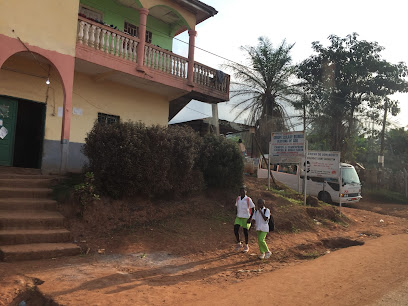
Espace culturel
Experience the vibrant art and culture of Cameroon at Espace Culturel in Yaoundé, a must-visit destination for every traveler.

Ceasar
Experience the vibrant culture and rich history of Ceasar, a must-visit tourist attraction in the heart of Yaoundé, Cameroon.

Rue de Michel
Experience the vibrant culture, local cuisine, and lively atmosphere of Rue de Michel, a must-visit street in Yaoundé, Cameroon.

Rond point
Discover the vibrant spirit of Cameroon at Rond Point in Yaoundé, a cultural focal point for tourists seeking local experiences.
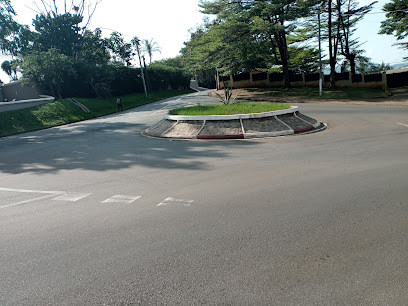
Essential places to dine
Tchopetyamo, Yaoundé
Savor the essence of Cameroon at Tchopetyamo in Yaoundé – where culinary tradition meets modern flair.
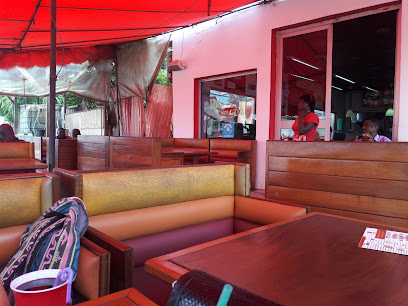
Istanbul Turkish Restaurant
Experience authentic Turkish cuisine at Istanbul Turkish Restaurant in Yaoundé – where tradition meets flavor in every dish.
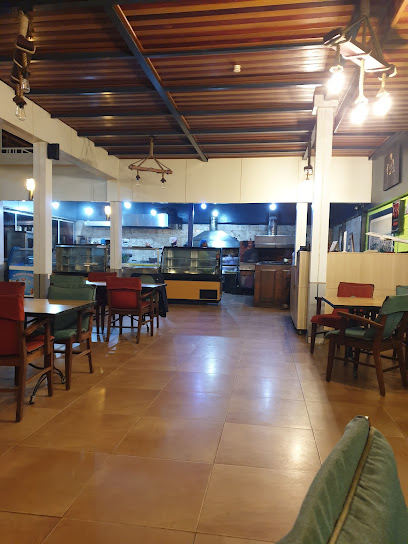
Boukarou Lounge
Experience authentic Cameroonian cuisine at Boukarou Lounge - where flavor meets culture in the heart of Yaoundé.
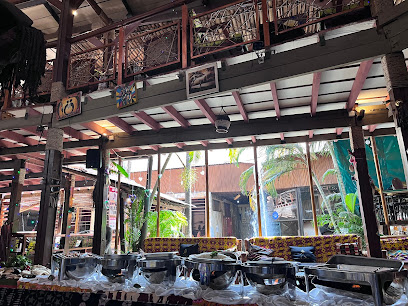
Socrat Restaurant
Experience the rich flavors of Cameroon at Socrat Restaurant in Yaoundé - where local cuisine meets global influences.
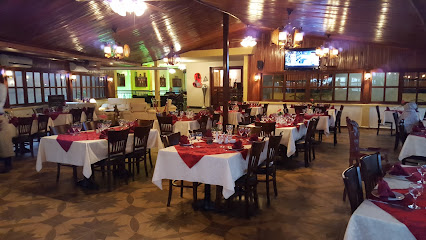
The Famous
Experience exquisite dining at The Famous in Yaoundé - where local flavors meet international cuisine in an elegant setting.
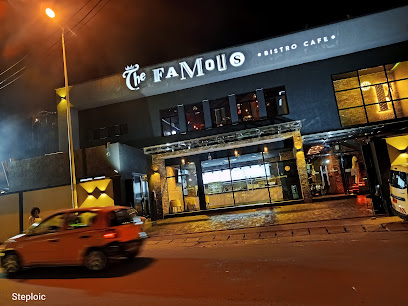
Restaurant Kajazoma
Discover the rich flavors of Cameroon at Restaurant Kajazoma in Yaoundé – where culinary tradition meets modern dining.
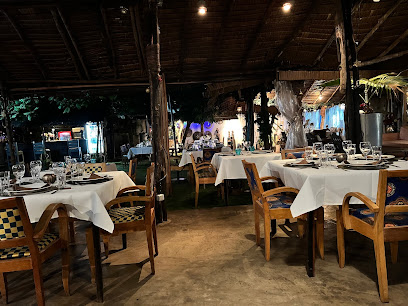
Maison Blanche
Discover the flavors of Cameroon at Maison Blanche – where local ingredients meet international cuisine in an inviting atmosphere.
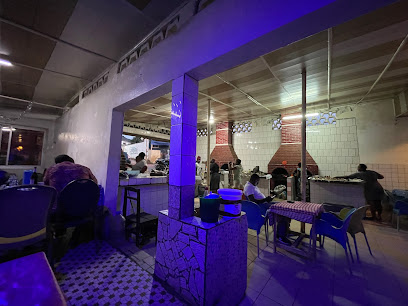
Le Safoutier Restaurant
Experience exquisite dining at Le Safoutier Restaurant in Yaoundé - where local flavors meet international cuisine amidst elegant surroundings.
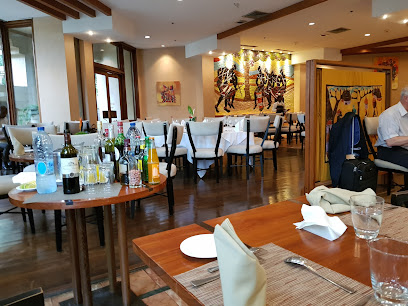
Bois d'ebene
Experience the vibrant flavors of Cameroon at Bois d'Ébène, where local cuisine meets international flair in a lively setting.
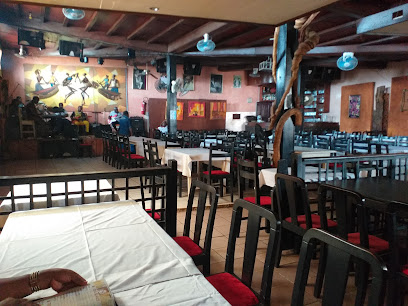
Chez Wou
Savor authentic Chinese cuisine at Chez Wou in Yaoundé - where every dish tells a delicious story.
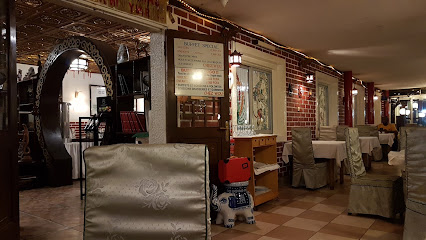
La Salsa Restaurant
Experience authentic Cameroonian cuisine blended with international flavors at La Salsa Restaurant in Yaoundé's lively Quartier Bastos.
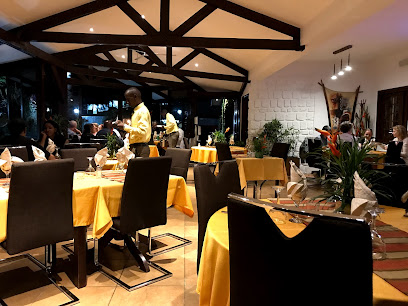
Cosy Pool
Experience exquisite French cuisine at Cosy Pool in Yaoundé's Quartier Bastos – a culinary gem offering serenity and flavor.
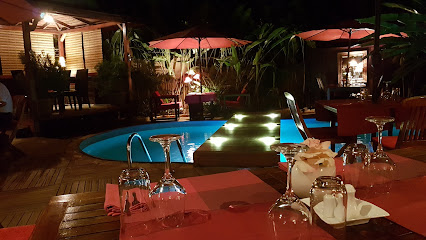
Dolce Vita
Experience authentic Italian cuisine at Dolce Vita in Yaoundé – where tradition meets flavor in every dish.
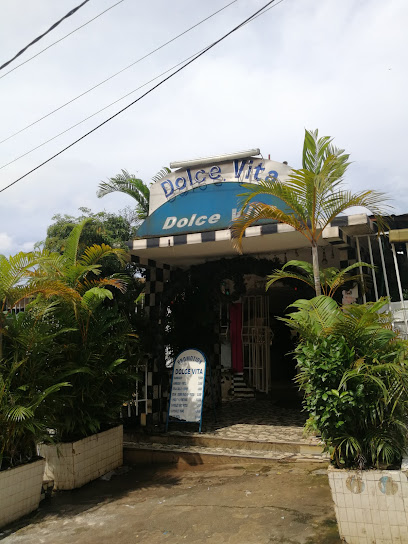
سوبر ماركة ومطعم ماهيما
Experience the authentic taste of India at Mahima Restaurant in Yaoundé - a culinary gem offering exquisite flavors and delightful dining.
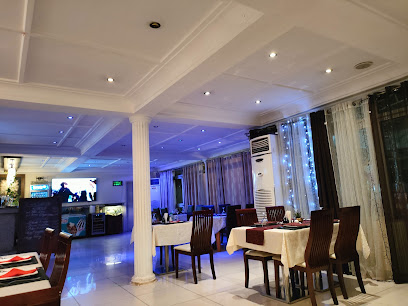
O'Haïra Walet Restaurant
Experience authentic Cameroonian cuisine at O'Haïra Walet Restaurant in Yaoundé, where flavor meets tradition in a warm atmosphere.
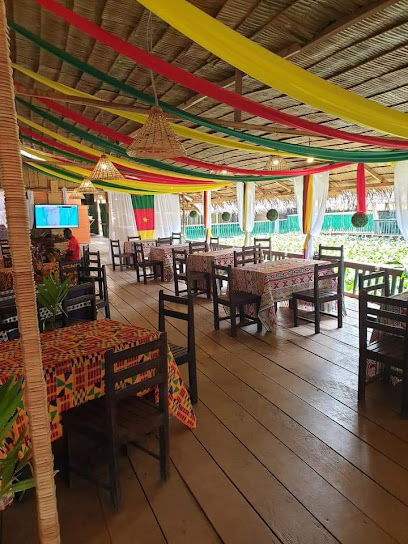
Markets, malls and hidden boutiques
PlaYce Yaoundé
Explore the ultimate shopping and dining experience at PlaYce Yaoundé, where culture and commerce meet in vibrant Cameroon.
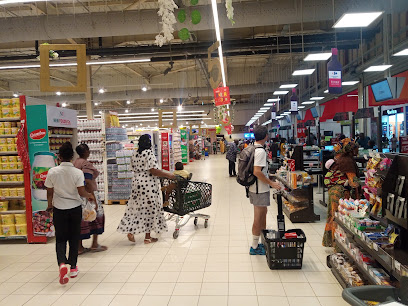
ORCA Yaoundé
Discover ORCA Yaoundé, where shopping meets culture in a vibrant mall filled with diverse retailers and local flair.
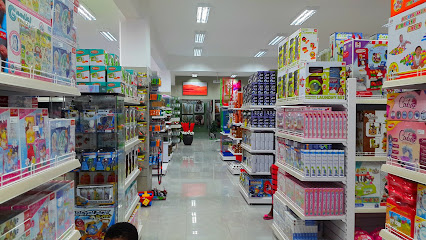
Mfoundi Market A
Explore the vibrant Mfoundi Market in Yaoundé for fresh produce, local delicacies, and unique handcrafted souvenirs amidst a lively cultural atmosphere.
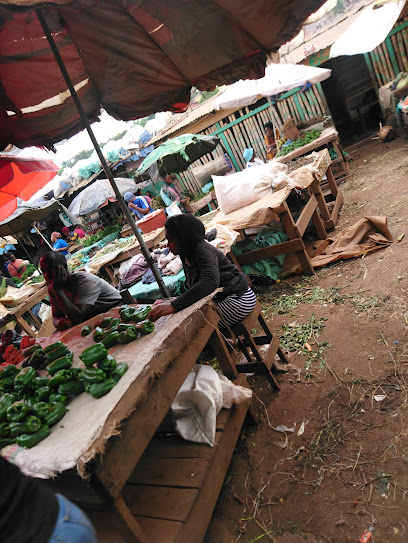
Marché Central Yaounde
Explore the lively Marché Central Yaoundé, a bustling market offering local crafts, delicious street food, and a taste of Cameroonian culture.
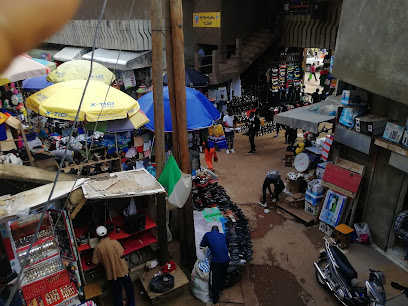
GLOTELHO Boutique Officielle Yaounde (Calafatas)
Discover the latest in electronics at GLOTELHO Boutique Yaoundé - your ultimate shopping destination for tech enthusiasts.
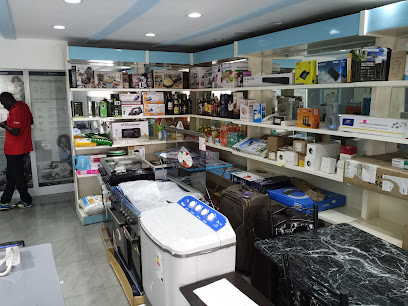
Carrefour Intendance
Explore the beauty of Cameroonian craftsmanship at Carrefour Intendance, a premier jewelry store in Yaoundé offering unique handcrafted pieces.
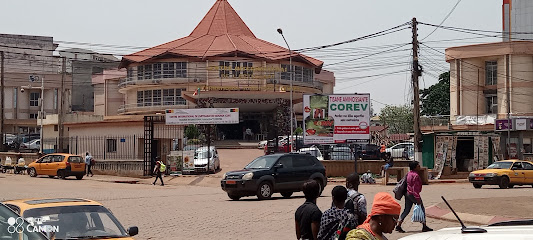
Kenza Market
Experience the vibrant atmosphere and diverse offerings at Kenza Market in Yaoundé, a must-visit destination for every traveler.
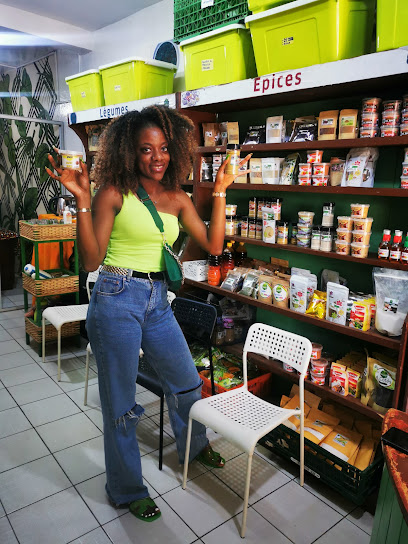
Maison Apple
Discover the latest mobile technology at Maison Apple, a premier cell phone store in the heart of Yaoundé.
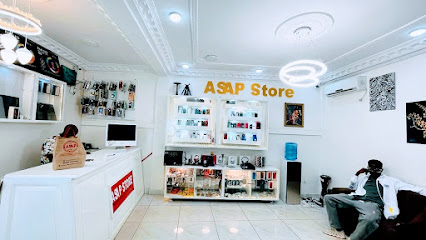
Librairie Des Peuples Noirs
Explore the rich tapestry of African literature at Librairie Des Peuples Noirs in Yaoundé, a must-visit for book lovers and cultural enthusiasts.
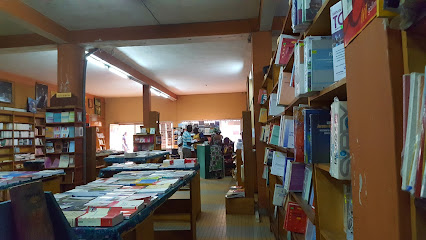
Boutique Orange KENNEDY
Discover the latest mobile technology at Boutique Orange KENNEDY in Yaoundé, your stop for connectivity and local insights.
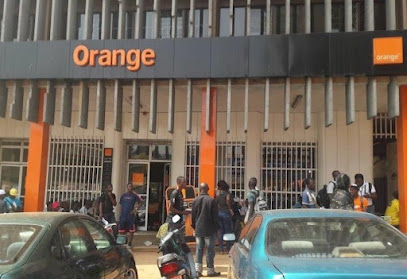
MarShop
Discover the vibrant shopping experience at MarShop in Yaoundé, your ultimate destination for clothing, shoes, and accessories for all ages.
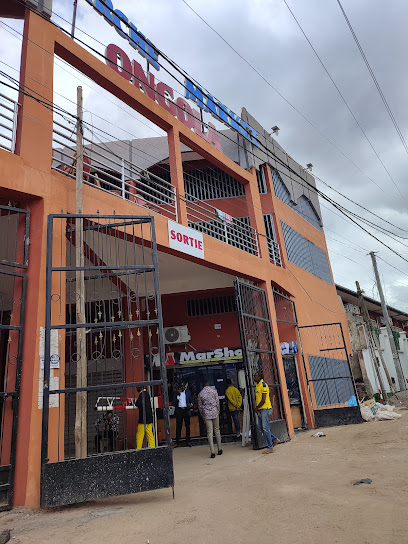
ESSO SARL, Marché Central de Yaoundé, Boutique 99
Discover the best in electronics at Boutique 99, nestled within the vibrant Marché Central de Yaoundé, a tech lover's paradise in Cameroon.
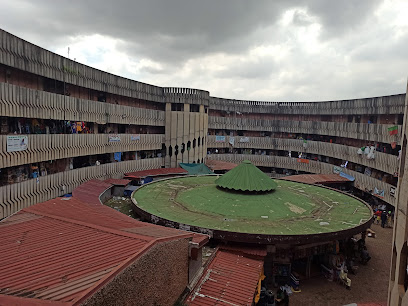
Uni-Shop
Discover unique fashion accessories at Uni-Shop in Yaoundé, where local craftsmanship meets contemporary style in a vibrant shopping experience.
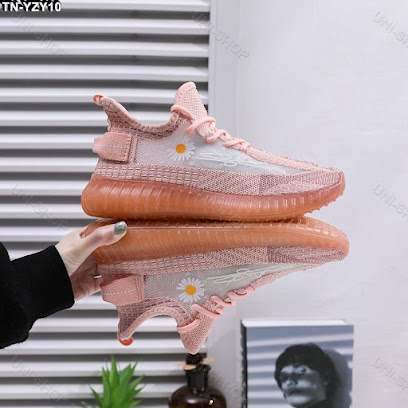
Beteck
Explore the vibrant culture of Cameroon at Beteck Gift Shop, where unique gifts and local crafts await in the heart of Yaoundé.
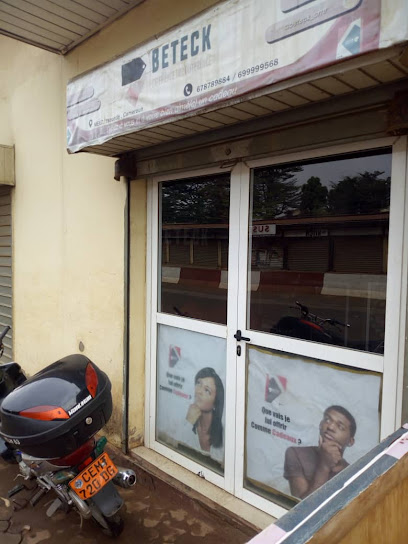
VA La Boutique Fashion Designer
Explore unique Cameroonian fashion at VA La Boutique in Yaoundé, where local creativity meets contemporary style.
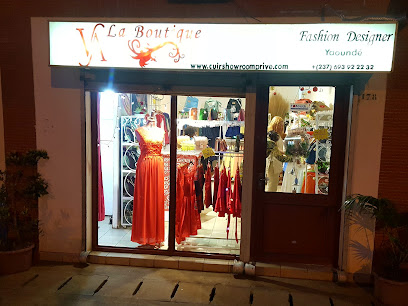
Essential bars & hidden hideouts
Black & White Sensation (Bastos)
Experience the upscale vibrancy of Black & White Sensation in Bastos, a must-visit lounge for tourists seeking elegance and delightful cocktails in Yaoundé.
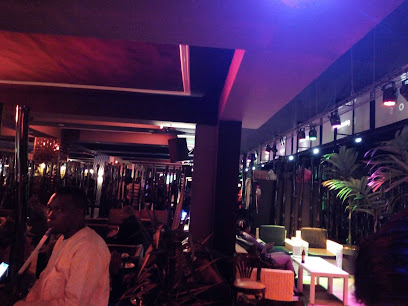
MASKS Resto Bar
Experience the best of grill and cocktail culture at Masks Resto Bar in Yaoundé, where flavor meets vibrant atmosphere.
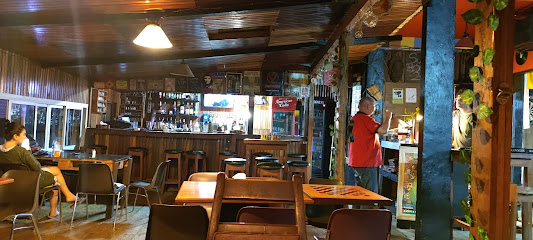
Bliss restaurant bar lounge
Discover Bliss Restaurant Bar Lounge in Yaoundé for a unique blend of local flavors, vibrant nightlife, and a welcoming atmosphere.
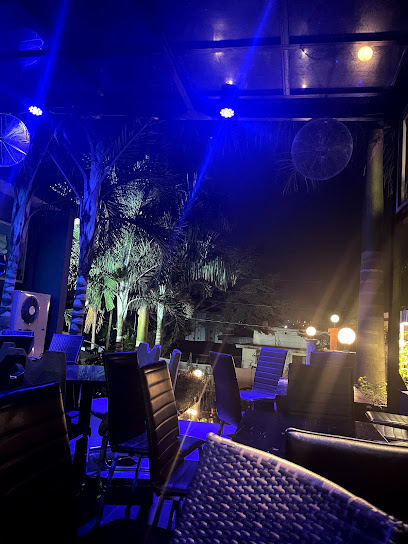
Circle Club
Experience the vibrant nightlife of Yaoundé at Circle Club, where local flavors meet global music in a lively lounge atmosphere.
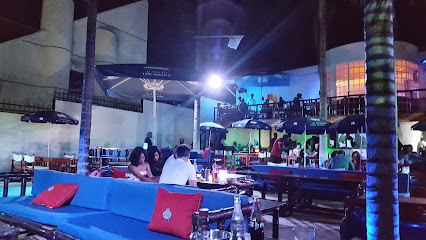
The Rooftop Yaoundé
Discover the enchanting Rooftop Yaoundé, where breathtaking views meet vibrant nightlife and delicious local flavors in a perfect blend.
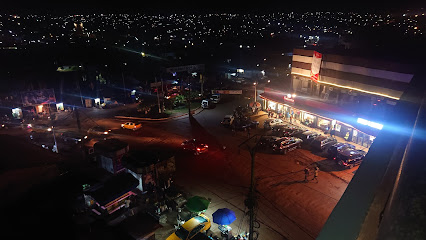
Route 66 Bar & Grill Bastos Yaounde
Discover the essence of American dining at Route 66 Bar & Grill in Yaoundé, offering a diverse menu and vibrant atmosphere.
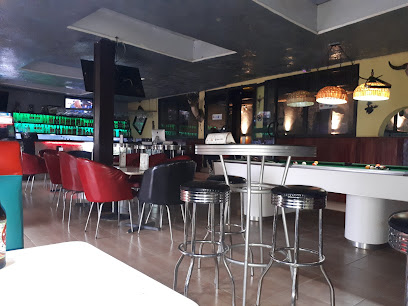
Bambou Lounge
Discover the vibrant atmosphere of Bambou Lounge in Yaoundé, where delicious food meets lively nightlife for an unforgettable experience.
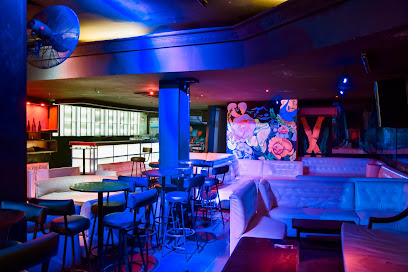
Apollo Bar
Discover the lively nightlife of Yaoundé at Apollo Bar, where vibrant atmosphere and friendly locals await you.
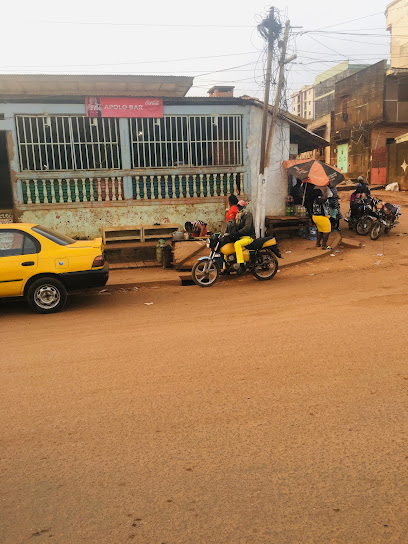
SUCCESS BAR, Yaoundé
Discover the lively atmosphere and local flavors at SUCCESS BAR in Yaoundé, a must-visit stop for every traveler seeking nightlife.
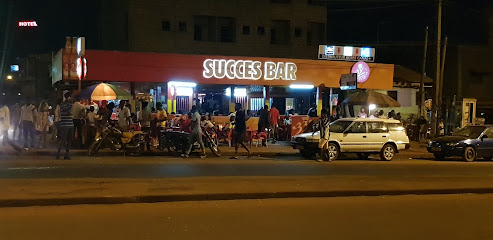
Rétro Bar
Discover Rétro Bar in Yaoundé: A lively hub for affordable drinks and unique hookah experiences, perfect for tourists seeking local culture and nightlife.
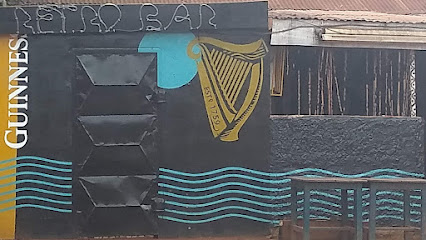
Panoramique Bar & Lounge
Experience the vibrant nightlife at Panoramique Bar & Lounge in Yaoundé, with stunning views, live music, and delectable sushi offerings.
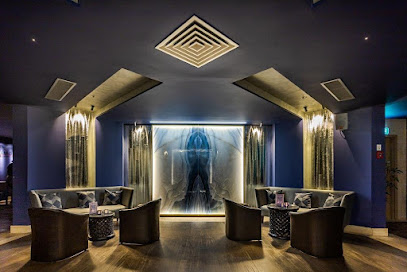
Cocotier Bar, Yaoundé
Discover Cocotier Bar in Yaoundé – a vibrant spot for drinks, local culture, and a relaxed atmosphere, perfect for unwinding after a day of exploration.
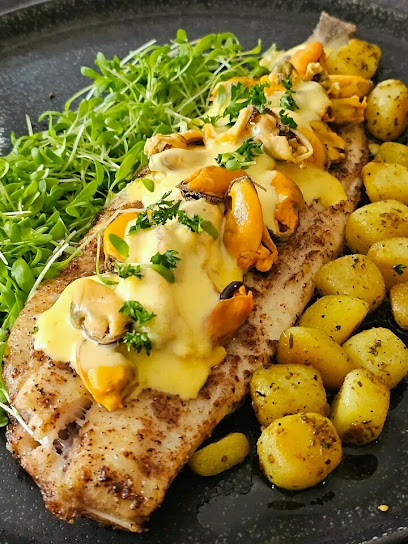
Cadaffi bar, Yaoundé
Cadaffi Bar: A vibrant spot in Yaoundé offering a delightful mix of local drinks and a welcoming atmosphere for all visitors.
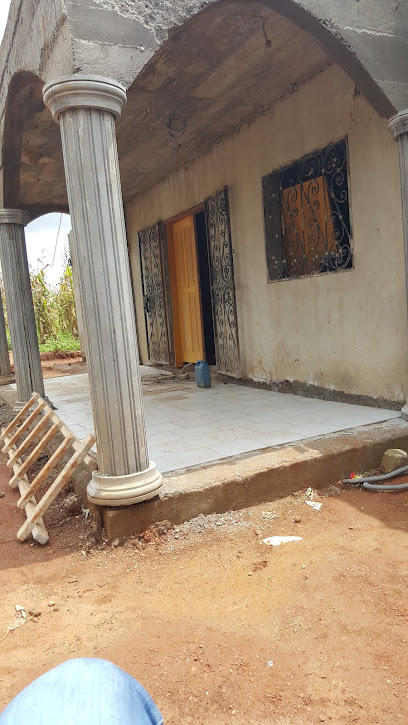
Facing Three Statutes Bar
Discover the lively spirit of Yaoundé at Facing Three Statutes Bar, where culture meets cocktails in a vibrant atmosphere.
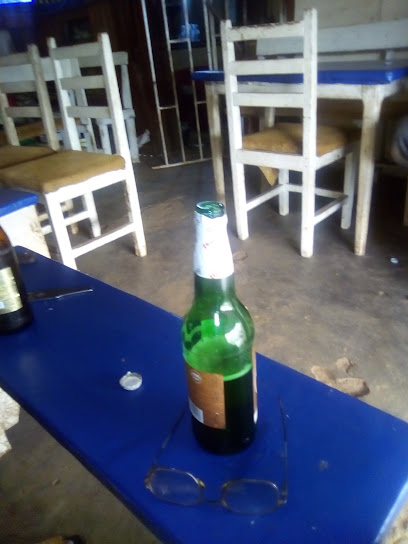
Café cool
Experience the vibrant nightlife at Café Cool, a top pub in Yaoundé offering refreshing drinks and a lively social atmosphere.
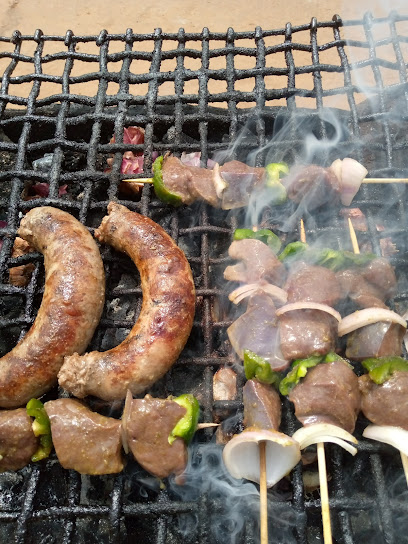
Local Phrases
-
- HelloBonjour
[bon-zhoor] - GoodbyeAu revoir
[oh re-vwar] - YesOui
[wee] - NoNon
[nohn] - Please/You're welcomeS'il vous plaît
[seel voo pleh] - Thank youMerci
[mehr-see] - Excuse me/SorryPardon
[pahr-dohn] - How are you?Comment ça va?
[koh-mohn sah vah] - Fine. And you?Bien. Et toi?
[byen. ay twah] - Do you speak English?Parlez-vous anglais?
[par-leh voo ahn-glay] - I don't understandJe ne comprends pas
[zhuh nuh kohm-prahn pah]
- HelloBonjour
-
- I'd like to see the menu, pleaseJe voudrais voir le menu, s'il vous plaît
[zhuh voo-dray vwah-r leh meh-noo, seel voo pleh] - I don't eat meatJe ne mange pas de viande
[zhuh nuh mahnj pah duh vyand] - Cheers!Santé!
[sahn-tay] - I would like to pay, pleaseJe voudrais payer, s'il vous plaît
[zhuh voo-dray pay-ay, seel voo pleh]
- I'd like to see the menu, pleaseJe voudrais voir le menu, s'il vous plaît
-
- Help!Au secours!
[oh seh-coor] - Go away!Allez-vous en!
[ah-lay vooz ahn] - Call the Police!Appelez la police!
[ah-pel-ay lah poh-lees] - Call a doctor!Appelez un médecin!
[ah-pel-ay ahn may-deh-sahn] - I'm lostJe suis perdu
[zhuh swee pair-doo] - I'm illJe suis malade
[zhuh swee mah-lahd]
- Help!Au secours!
-
- I'd like to buy...Je voudrais acheter...
[zhuh voo-dray ah-shet-ay] - I'm just lookingJe regarde juste
[zhuh ruh-gard zhuhst] - How much is it?Combien ça coûte?
[kohm-byen sah koot] - That's too expensiveC'est trop cher
[say troh shair] - Can you lower the price?Pouvez-vous baisser le prix?
[poo-veh voo bay-say leh pree]
- I'd like to buy...Je voudrais acheter...
-
- What time is it?Quelle heure est-il?
[kehl uhr ay-teel] - It's one o'clockIl est une heure
[eel ay oon uhr] - Half past (10)Dix heures et demie
[dees uhr ay duh-mee] - MorningMatin
[mah-tahn] - AfternoonAprès-midi
[ah-pray mee-dee] - EveningSoir
[swahr] - YesterdayHier
[yehr] - TodayAujourd'hui
[oh-zhoor-dwee] - TomorrowDemain
[duh-man] - 1Un
[uhn] - 2Deux
[duh] - 3Trois
[twah] - 4Quatre
[kah-truh] - 5Cinq
[sank] - 6Six
[sees] - 7Sept
[sept] - 8Huit
[weet] - 9Neuf
[nuff] - 10Dix
[dees]
- What time is it?Quelle heure est-il?
-
- Where's a/the...?Où est...?
[oo eh...] - What's the address?Quelle est l'adresse?
[kehl eh la-dress] - Can you show me (on the map)?Pouvez-vous me montrer (sur la carte)?
[poo-veh voo muh mohn-tray (soor lah kart)] - When's the next (bus)?Quand est le prochain (bus)?
[kahn eh luh proh-shahn (boos)] - A ticket (to ....)Un billet (pour ....)
[uhn bee-yay (poor)]
- Where's a/the...?Où est...?
History of Yaoundé
-
Yaoundé was founded in 1888 by German explorers as a base for the ivory trade and an agricultural research station. Initially named Jaunde, it served as an important center during the German colonial period in Cameroon.
-
During the German colonial period, Yaoundé grew in political and economic importance. Infrastructure such as roads and administrative buildings were constructed, laying the groundwork for the city's future development.
-
Following Germany's defeat in World War I, Cameroon was divided between the French and the British. Yaoundé became the capital of French Cameroon in 1922. The city expanded further under French administration, with the establishment of government institutions and public services.
-
Cameroon gained independence from France in 1960, and Yaoundé was declared the capital of the newly independent nation. The city's population and infrastructure grew rapidly, transforming it into a significant political and cultural center in the region.
-
Yaoundé is home to several cultural landmarks, such as the National Museum of Cameroon, which houses artifacts that reflect the rich history and diverse cultures of the country. The Reunification Monument commemorates the unification of French and British Cameroons in 1961.
-
In recent decades, Yaoundé has experienced significant economic growth. It hosts various industries, from manufacturing to services, and serves as a hub for regional trade and commerce. The city's economic vitality is underscored by its bustling markets and modern commercial districts.
-
Yaoundé is a center for education in Cameroon, featuring prominent institutions such as the University of Yaoundé, which was established in 1962. The city attracts students from across the country and the region, contributing to its vibrant intellectual and cultural life.
Yaoundé Essentials
-
Yaoundé, the capital of Cameroon, is served by the Yaoundé Nsimalen International Airport (NSI), located about 27 kilometers from the city center. International flights from Europe, Africa, and the Middle East frequently land here. From the airport, taxis and shuttle services are available to take you to your destination. Alternatively, you can reach Yaoundé by train from Douala, Cameroon’s largest city, or by bus from various major cities within the country.
-
Public transportation in Yaoundé includes taxis, buses, and motorcycle taxis (locally known as 'benskins'). Taxis are the most common mode of transport and are relatively inexpensive, but it's advisable to negotiate the fare upfront. The city's bus network is operated by SOCATUR and covers most urban areas. Motorcycle taxis are a quick way to navigate through traffic but may not be the safest option. Car rentals are available for those who prefer driving themselves.
-
The official currency of Cameroon is the Central African CFA Franc (XAF). Credit cards are accepted in major hotels, restaurants, and supermarkets, but it's advisable to carry cash for smaller purchases and in more remote areas. ATMs are widely available in Yaoundé, and currency exchange services can be found at the airport and in the city center.
-
While Yaoundé is generally safe for tourists, it is advisable to take standard precautions. Avoid walking alone at night and be cautious in crowded places to prevent pickpocketing. Some areas, such as Mvog-Mbi and Briquetterie, have higher crime rates, particularly targeting tourists. Always keep an eye on your belongings and avoid displaying valuable items.
-
In case of emergency, dial 112 for police assistance, 118 for medical emergencies, and 113 for fire services. Major hospitals such as Hôpital Central de Yaoundé and Hôpital Général de Yaoundé offer medical services. It is recommended to have travel insurance that covers medical emergencies. For minor health issues, pharmacies are widely available throughout the city.
-
Fashion: Do dress modestly, especially when visiting religious sites and government buildings. Avoid wearing overly revealing clothing. Religion: Do respect local customs and traditions. When visiting churches or mosques, dress conservatively and be respectful. Public Transport: Do be patient, as public transport can be crowded and schedules may not be strictly followed. Don’t argue with drivers or other passengers. Greetings: Do greet people with a handshake. It's polite to ask about someone's well-being before getting to the point of your conversation. Eating & Drinking: Do try local dishes such as ndolé and poulet DG. Don’t eat or drink in public places during Ramadan, as it may offend those who are fasting.
-
To experience Yaoundé like a local, visit the bustling Mokolo Market where you can buy fresh produce, traditional crafts, and fabrics. Engage with locals, as they are often friendly and willing to share insights about their culture and city. Don't miss a visit to Mont Fébé for a panoramic view of the city or the National Museum of Yaoundé to learn about Cameroon's rich history. For a unique dining experience, try eating at one of the local 'boukarous' or street food stalls.
Trending Landmark in Yaoundé
-
Entrée Simbock
-
National Museum
-
Mvog-Betsi Botanical Zoological Garden
-
Cameroon Reunification Monument
-
Bois Sainte Anastasie
-
Basilica of Mary Queen of Apostles
-
Quartier general
-
Entrée Palais des Congrée
-
Statue of Charles Atangana
-
Parc de la Méfou (Ape Action Africa)
-
Musée Ethnographique et d'Histoire des Peuples de la Forêt d'Afrique Centrale
-
Paroisse Francophone Saint-Esprit de Mvolye
-
St Peter and Paul Parish English Simbock
-
Blackitude Museum
-
I love my country Cameroon round about
Nearby Cities to Yaoundé
-
Things To Do in Bafia
-
Things To Do in Ebolowa
-
Things To Do in Edea
-
Things To Do in Douala
-
Things To Do in Bitam
-
Things To Do in Kribi
-
Things To Do in Nkongsamba
-
Things To Do in Bafoussam
-
Things To Do in Foumban
-
Things To Do in Dschang
-
Things To Do in Mbouda
-
Things To Do in Tiko
-
Things To Do in Bertoua
-
Things To Do in Buea
-
Things To Do in Limbe















